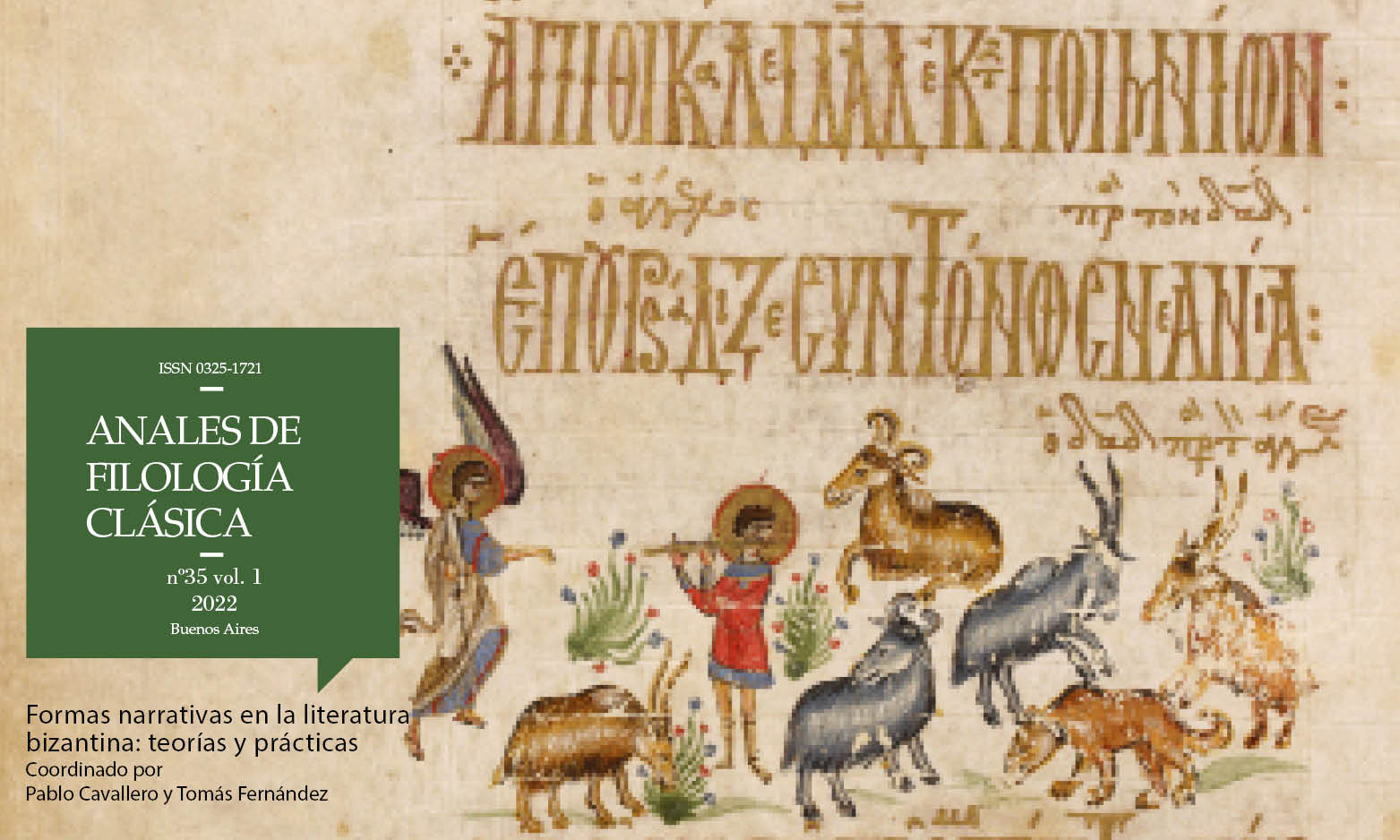The voice of the author and the voice of the metaphrastes: the case of Theodore of Paphos' Life of Spyridon
Keywords:
Byzance - Hagiography – Metaphrasis –Theodore of Paphos – Spyridon
Abstract
Van den Ven has published, in 1953, four texts about the life of saint Spyridon. The "Life I" is a work from Theodore, bishop of Paphos, in Cyprus, who employed the same sources that Leontius of Neapolis did ("Life II", as we think); and he added another personal sources. The "Life III" is a metaphrasis on the Theodore' text. We propose to confront "Life I" and "Life III" focalizing here in the author's voice. Theodore has an evident and stable presence throughout the work, with theological and moral commentaries and with meta-literary and local details; on the contrary, the metaphrastes reduces his voice to some interventions (mostly in the prologue), which comment about the text and leave out the more personal testimonies of the original author. We think that the metaphrastes' intention was to place at the forefront the saint and his miracles; and to erase the evident presence of the author and of the witness, in order to put Spyridon (and God) as the preeminent figure of the didactic story. He made then a shorter text (μετρίως πως καὶ ἀμυδρῶς 129: 20) but also more readable to a timeless and less local audience.Downloads
Download data is not yet available.
Published
2023-05-02
How to Cite
CAVALLERO, P. (2023). The voice of the author and the voice of the metaphrastes: the case of Theodore of Paphos’ Life of Spyridon. Anales De Filología Clásica, 1(35). https://doi.org/10.34096/afc.i35.12846
Issue
Section
Artículos
Copyright (c) 2023 PABLO CAVALLERO

This work is licensed under a Creative Commons Attribution-ShareAlike 4.0 International License.
Los autores/as que publiquen en esta revista aceptan las siguientes condiciones:
- Los autores/as conservan los derechos de autor y ceden a la revista el derecho de la primera publicación, con el trabajo registrado con la licencia de Atribución-CompartirIgual 4.0 Internacional (CC-BY-SA 4.0) de Creative Commons, que permite el uso comercial de la obra y de las posibles obras derivadas, la distribución de las cuales se debe hacer con una licencia igual a la que regula la obra original.
- Los autores/as pueden realizar otros acuerdos contractuales independientes y adicionales para la distribución no exclusiva de la versión del artículo publicado en esta revista (p. ej., incluirlo en un repositorio institucional o publicarlo en un libro) siempre que indiquen claramente que el trabajo se publicó por primera vez en esta revista.
- Se permite y recomienda a los autores/as a publicar su trabajo en Internet (por ejemplo en páginas institucionales o personales) antes y durante el proceso de revisión y publicación, ya que puede conducir a intercambios productivos y a una mayor y más rápida difusión del trabajo publicado (vea The Effect of Open Access).
En ningún momento se cobrará monto alguno al autor por la publicación en esta revista.







